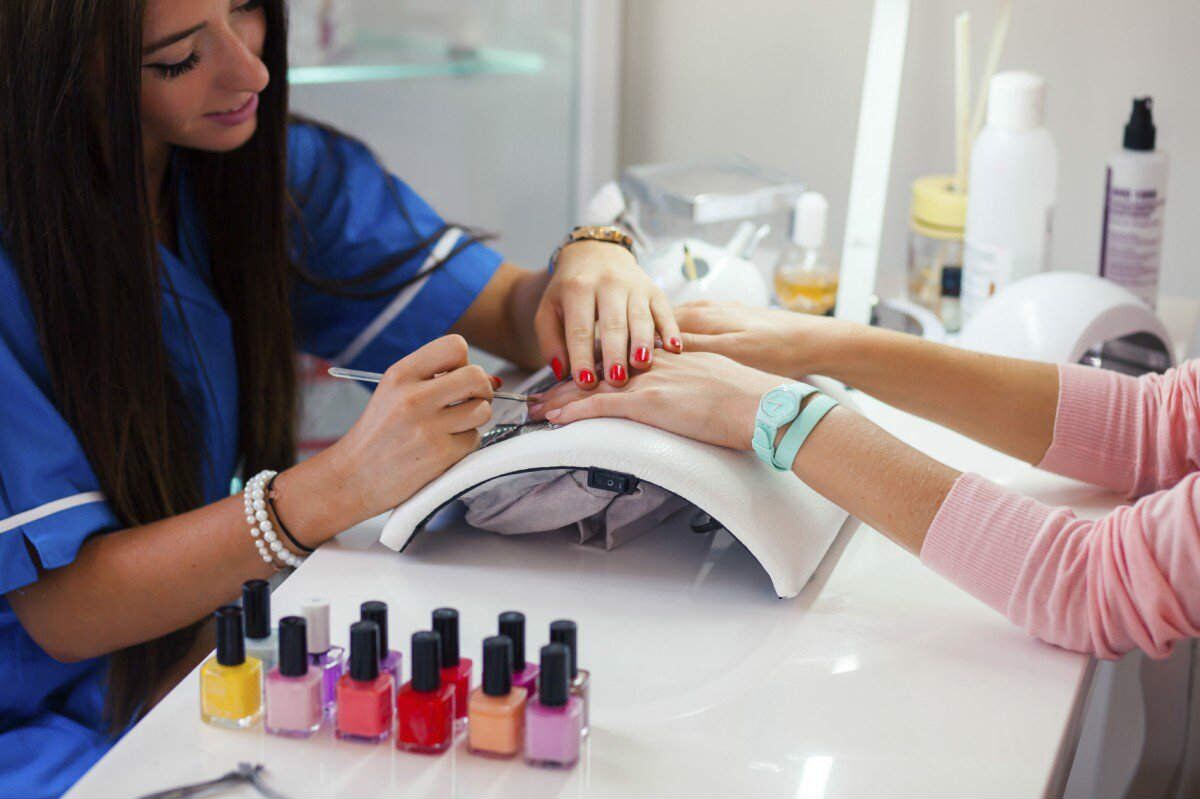While most of us would not think of nail salon work as a high risk job, the reality is that these workers are exposed to dangerous chemicals on the job.

Nail salons are extremely popular among those who love to pamper themselves with a pedicure or manicure. This industry continues to grow, even though many other luxury services have suffered an economic setback.
According to the Centers for Disease Control and Prevention, there are nearly 350,000 workers employed in the nail salon industry in United States. While most of us would not think of nail salon work as a high risk job, the reality is that these workers are exposed to dangerous chemicals on the job.
Toxic Materials Used in Nail Salons
Nail salon workers are exposed to a wide variety of toxic materials that can have an adverse effects on the neurological, respiratory and musculoskeletal systems. Some of the common pathogens that nail salon workers are exposed to include:
- Acrylates
- Acrylic dust and other particulate matter
- Solvents
- Fungicides and Biocides
- Nail polishes and lacquers
Most nail salon workers come into contact with all these chemicals every single day at work.
Health Risks Posed by Chemical Exposure
A typical salon worker has to spend hours every day in close proximity to these dangerous chemicals. These workers perform their work on specialized tables on which the client’s hands or feet are directly placed and are in the worker’s breathing zone. What makes things worse for the workers is the fact that nail salons are often not well ventilated. According to the Centers for Disease Control, a large percentage of people working in the nail salon industry face a serious risk of exposure to a chemical called dibutyl phthalate, which is a carcinogen present in some nail products. Higher exposure levels can lead to long term risk of occupational diseases.
Women are at Higher Risk
Centers for Disease Control statistics reveal that around 96% of the salon workers are female. Female workers on average have higher body fat compared to men, which leads to increased buildup of toxic substances in the body. It has also been seen that many salon workers continue to work during pregnancy and lactation, which puts their babies at a high risk of chemical exposure.
Ensuring Safety of Nail Salon Workers
The National Institute for Occupational Safety and Health has listed safety measures that can help keep nail salon workers safe in the workplace. These safety measures include secure containers and dispensers for volatile liquids, consistent use of long sleeves, ergonomic work tables with increased airflow and provision of better gloves.
Nail Salon Worker Injuries and Workers Compensation
If you are a nail salon worker and you have suffered an occupational illness as a result of chemical exposure in the workplace, contact the Law Office of James M. Hoffmann. We can help you get the workers compensation benefits you deserve. Call us today at (314) 361-4300 or fill out our online contact form.
Workers & Industry
Airline Injuries
Auto Mechanic Injuries
Baggage Handler injuries
Bricklayer Injuries
Building Construction Injury
Carpenter Injury
Chemical Plant Accident
Coal Mining Accident
Commercial Food Industry Work Injury
Commercial Truck Accident
Concrete Worker Accident
Construction Accident
Cosmetologist Work Injury
Electric Company Workers Injured
Injured Electrical Worker
Electrician Accident
Elevator Worker Accident
Factory Accident
Farm Accident
Fedex Truck Accident
Firefighter Injuries
Processing Plant Injuries
Government Workers Comp
Healthcare Injuries
Injured Work From Home
Hospital Work Injury
Hotel Workers Injuries
Industrial Workplace Accidents
Iron Worker Accident
Janitor Injuries
Union Worker Accidents
Laboratory Accident
Manufacturing Injuries
Meat Packing Injuries
Metal Fabrication Accidents
Mining Accident
Working Multiple Jobs
Nail Salon Work Injury
Work Related Accidents on Night Shift
Nurse Injured at Work
Nursing Home Workers Injury
Office Accident
Oil Field Injury
Outdoor Workers Injured
Pipe Fitter Occupational Injury
Plumber Accident
Post Office Accident
Poultry Work Injury
Public Safety Officer Injuries
Railroad Worker Injuries
Recycling Plant Accidents
Restaurant Injury
Retail Accidents
Road Construction Accident
Roofing Accident
Sanitation Worker Injuries
Seasonal Worker Injured
Security Accident
Sewer Accidents
Summer Job Work Injury
Teacher Injured
Textile Mill Accidents
Transit Workers Accident
Truck Driver Injuries
Underground Mining Accidents
Utility Worker Accident
Veterinarian Injured
Warehouse Injuries
Window Cleaner Accident
